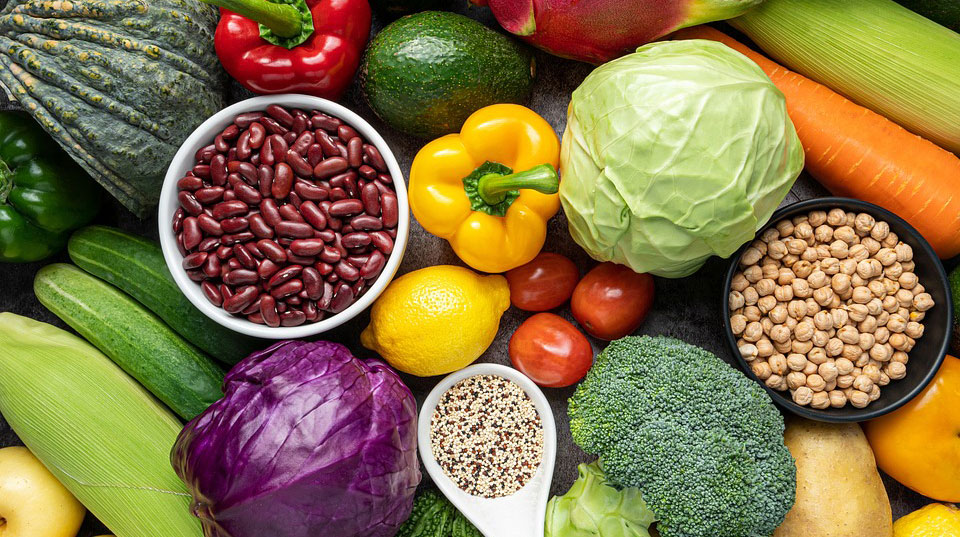
Foods That Help to Defy the Aging Process
A lot of people believe that they have to work out and eat healthy to avoid aging. However, there is more to life than that. The right nutrition will help you slow down or even reverse the effects of aging.
Oatmeal
If you want to fight the signs of aging, oatmeal is one of the most effective food ingredients you can use. Its antioxidant properties can help protect your skin and keep wrinkles at bay.
Oats are an excellent source of beta-glucans, which promote the production of collagen. They also have a protective effect against UV rays. Oats are high in fiber, which helps keep cholesterol and blood sugar in check.
Oats also contain saponins, which are naturally-occurring antibiotics that promote healthy digestion. Oats are also a powerful anti-inflammatory. They help remove dead skin cells and dirt from pores.
Oats are rich in avenanthramide, a powerful antioxidant. Studies show that this substance may help protect against cancer. It also has anti-inflammatory and anti-pruritic effects.
Another important benefit of oats is its ability to relieve itching. Oats have a long history of being used to treat itchiness and other skin conditions. They can also be applied topically to soothe the skin.
Aside from its anti-inflammatory benefits, oats are packed with vitamins and antioxidants. These antioxidants can be very effective at combating oxidative damage, which can result in fine lines and wrinkles.
Oats are also rich in lipids, which soothe dry and irritated skin. In addition, oats are a great source of protein and soluble fiber. These three nutrients are great for boosting energy and keeping blood sugar levels in check.
In fact, the National Academies of Sciences recommends that men and women under 50 get at least 25 grams of fiber per day. Oats are a great source of complex carbs, which are better for your body than sugary carbohydrates.
Oats are also a great source of glyceryl ester of ferulic acid, which is a powerful antioxidant. They also contain gamma-tocopherols, which have a powerful antioxidant and anti-inflammatory effect.
Walnuts
Walnuts are rich in fatty acids, antioxidants, and protein. They are known for reducing inflammation and lowering blood pressure. They also boost the health of the skin and may reduce the risk of cancer.
They contain linoleic acid and a-linolenic acid, which may help to strengthen the immune system. They are also rich in antioxidants and phytosterols. They are high in polyunsaturated fats and are especially enriched in linoleic acid. These are important for maintaining healthy cholesterol levels. They are high in omega-3 fatty acids, which are also believed to protect the heart and brain.
They have also been found to be effective in combating signs of aging. They help to remove dead cells from the skin and are a source of antioxidants that prevent cell damage caused by free radicals. They are also high in Vitamin E, which can delay the aging process.
A study by Dr. Deirdre Tobias, a nutrition and obesity epidemiologist at Brigham and Women’s Hospital, suggests that walnuts can play a role in preventing cardiovascular disease. She ran a two-year randomized controlled trial, in which participants either ate 1.5 ounces of walnuts daily or a control diet.
Researchers studied 708 adults aged 63 to 79. They asked them about their diet history and physical measurements at baseline and seven years into the trial. In addition, they measured lipid, blood sugar, and insulin concentrations.
One of the key findings was that those who ate walnuts were less likely to be obese and had a lower body mass index. Moreover, they had a better heart disease risk profile. They also had lower triglycerides, fasting glucose, and cholesterol levels.
The study also showed that the walnuts significantly improved inflammatory markers, which is an indication of the heart’s overall health. The scientists suggest that this could have been because of the high content of omega-3 fatty acids in these nuts.
Sesame Seeds
Sesame seeds are a nutritious food that has been used in folk medicine for thousands of years. Among other things, they contain vitamins, minerals, fiber, and protein. They are also rich in plant lignans. These plant lignans have antioxidant effects and are believed to promote a healthy heart and reduce the risk of certain cancers.
Sesame seeds are beneficial to the skin. They protect it from harmful UV light and free radicals. They also provide protection against inflammation and diabetes. They are a source of vitamin E, which supports the immune system and helps to prevent the development of blood clots.
The seeds are also rich in polyunsaturated fats, which help to lower cholesterol. They are also an excellent source of iron. In addition, they are a good source of manganese and magnesium. The minerals, vitamins, and proteins found in sesame seeds are essential for good health.
Several studies have suggested that eating sesame seeds may have a positive impact on heart health. These seeds are high in lignans, which are thought to improve LDL-to-HDL cholesterol ratios.
Lignans may also protect against osteoporosis and breast cancer. They are also considered to be effective in regulating cholesterol absorption in the liver.
Phytosterols are also present in sesame seeds, which are thought to reduce the risk of heart disease. In one study, researchers discovered that sesame seeds significantly increased serum gamma-tocopherol levels. These nutrients protect the brain and heart, and they are also effective in reducing inflammation.
Sesame seeds are also a good source of calcium. It is believed that the plant lignans and the vitamins in sesame seeds help to guard against chronic diseases such as dementia, cancer, and diabetes. The vitamin E in sesame seeds is helpful in preventing the onset of inflammation and oxidative stress.
Red Wine
Red wine is a drink with a lot of bioactive compounds. These include resveratrol, anthocyanins, catechins, and proanthocyanidins.
The antioxidants present in red wine activate anti-stress enzymes. They also help protect the heart and blood vessels. Moderate red wine consumption has also been linked to a lower risk of cancer. In addition, it may help regulate glucose levels.
But, there’s also some conflicting research. A 2006 BMJ study found that people who drink wine buy healthier foods. Another review in the journal, Circulation, has suggested that moderate drinking is good for the heart.
But there are also some health issues associated with excessive drinking. The liver can become damaged from heavy drinking. It can affect sugar metabolism and lead to diabetes. It can also interfere with the effectiveness of medications. Alcohol can also be a depressant.
It’s also important to consider that while drinking wine may reduce the risk of some cancers, it can increase the risk of others. The American Heart Association is cautious about the link between red wine and heart disease.
The CDC recommends that men consume 2 alcoholic drinks a day and women one. These recommendations are based on standard-sized drinks at 12% ABV. However, there is no correlation between how much wine a person drinks and how long he or she lives.
Studies have shown that the skins of red grapes contain high levels of resveratrol. These polyphenols have been studied extensively for their protective effects on vascular health.
Researchers have also found that red wine may slow the process of aging. A study involving 960 older adults over the period of 4.7 years found that moderate red wine consumption helped with memory and episodic memory.






